Christmas celebrates the birth of a child as a fresh, distinctive moment marking God’s entry into human affairs. The readings call attention to the pattern of salvation in the Jewish people’s return from exile in Babylonia during the sixth century BCE (Isaiah 63), as well as in the providential ordering of nature (Psalm 148). The pattern reaches into Jesus’ role as high priest for the sins of humanity (Hebrews 2), and, in the final reading for the day from Matthew’s Gospel, it is exemplified by the connections between Prophetic texts and the story of Jesus’ birth and early life.
The First Reading
Isaiah 63:7-9
God Is Present to Redeem the Children of God
The prophet Isaiah’s reflection on the return of the Jews from exile in Babylonia gives shape to this proclamation: the Lord is consistently faithful to the House of Israel. Not only in the restoration following exile, but in many praiseworthy deeds and an abundance of faithful acts God has rescued the people over and over again. It has become an enduring hallmark of God’s parenthood: responding with God’s own presence whenever distress comes calling.
—
- The faithful acts of the Lord I will announce—
the praiseworthy deeds of the Lord:
according to all that the Lord has accomplished for us,
and an abundance of good for the House of Israel,
which the Lord has accomplished in accordance with divine mercies
and the abundance of faithful acts. - The Lord said, “Surely they are my people, children who are not false,”
and so became their rescuer. - In all their distress—
neither an envoy nor a messenger:
the Lord’s own presence rescued them!
In divine love and compassion, the Lord has redeemed them,
restores them, and lifts them up throughout the days of all time.
The Psalm
Psalm 148
All Creation Must Praise God, Lord of All Creation
The entire range of God’s cosmic creation owes God praise. In the Christmas season, the church can celebrate Jesus as the “horn” God has raised up for the people, giving fresh impetus to their praise.
—
- Praise Yah!
Praise the Lord from the heavens;
praise God in the heights. - Praise God, all God’s messengers;
praise God, all divine armies. - Praise God, sun and moon;
praise God, all bright stars. - Praise God, you highest heavens,
and you waters that are above the heavens. - Let them praise the Lord’s name,
for God commanded and they were created. - God established them for eternity;
God set their boundaries, which no one can violate. - Praise God from the earth:
the sea monsters and all the ocean depths, - fire and hail, snow and storm clouds,
the raging wind fulfilling God’s will; - the mountains and all the hills,
fruit trees and all cedars; - wild animals and all beasts,
creeping things and winged birds; - kings of the earth and all peoples,
princes and all the land’s rulers. - Young men and also young women,
the old along with the youth— - let them praise the Lord’s name,
for God’s name alone is exalted.
God’s majesty is upon the earth and heaven! - God has raised a horn for God’s people;
praise for all these faithful,
for the people of Israel, the people who are close to God.
Praise Yah!
The Second Reading
Hebrews 2:10-18
Jesus’ Suffering and His Role as High Priest
Jesus’ birth made him subject, as is any human being, to suffering and death. The Epistle to the Hebrews contemplates this mortality, meditating on how human identity made Jesus both higher than the angels and akin to people as a whole. God always intended to reach all humanity, and divine concern for Israel had always modeled this intent. Thus the high priesthood of Israel is the paradigm of the priesthood that Jesus will exercise in God’s fulfilled vision for creation.
—
So it fits that God, for whom and through whom everything exists, brings many children to glory by perfecting the pioneer of their salvation through suffering. The one who sanctifies and those sanctified are all from a single source. For that reason, Jesus is not ashamed to call them family, saying, “I will announce your name to my family; in the congregation’s midst I will praise you,” and again, “I will put my trust upon him,” and again, “Here am I, and the children God has given me.” Since, then, children share blood and flesh, he also took those on himself, so that he could debilitate the one who has the power of death—that is, the devil—and liberate any who, through fear of death, all their lives had been susceptible to enslavement. God definitely does not reach out to angels, but reaches out to Abraham’s seed. Hence, Jesus had to be made similar to the human family in every way, so that he became compassionate, a faithful high priest, conciliating God for the people’s sins. When tested, he suffered, and in that he is able to help those who are tested.
The Gospel
Matthew 2:13-23
Joseph Shepherds the Family to Safety
This reading from the Gospel of Matthew follows the decision of the magi, who had been advised in a dream not to return to Herod with the news of where the King of the Jews had been born. They instead go away directly to their home country. Now, Joseph also follows the warning of a dream-appearance, fleeing with his family to Egypt. Herod reacts violently, but even his senseless rage is depicted as part of the prophecy that Matthew presents Jesus as fulfilling. Just as the people Israel were born as a nation out of Egyptian bondage, Jesus is portrayed as embarking from Egypt on his mission as God’s chosen.
—
As the magi departed, look: A messenger of the Lord made a dream-appearance to Joseph. He said, “Wake up, take the child and his mother and flee into Egypt, and stay there until I speak to you; Herod is about to seek the child to destroy him.” Joseph woke up, took the child and his mother at night and departed into Egypt, and he was there until the death of Herod, so that what was said by the Lord through the prophet was fulfilled: “Out of Egypt I called my son.” Then Herod saw that he had been mocked by the magi: he was outraged. He ordered the murder of all boys in Bethlehem and in all its regions, two years old and under, according to the time that he had determined from the magi. Then what was said through the prophet Jeremiah was fulfilled: “A voice is heard in Ramah, weeping and great lamentation—Rachel weeping for her children, and she will not be comforted, because they are gone.” Then, when Herod met his end, look: A messenger of the Lord made a dream-appearance to Joseph in Egypt. He said, “Wake up, take the child and his mother and go to the land of Israel, because those who sought the child’s life have died.” Joseph woke up and took the child and his mother and went into the land of Israel. But when he heard that Archelaus reigned in Judea in place of his father Herod, he was afraid to go there, and being advised by a dream, he withdrew into the boundaries of Galilee. He went and resided in a town called Nazareth; thus what was said through the prophets was fulfilled: “He will be called a Nazorean.”

